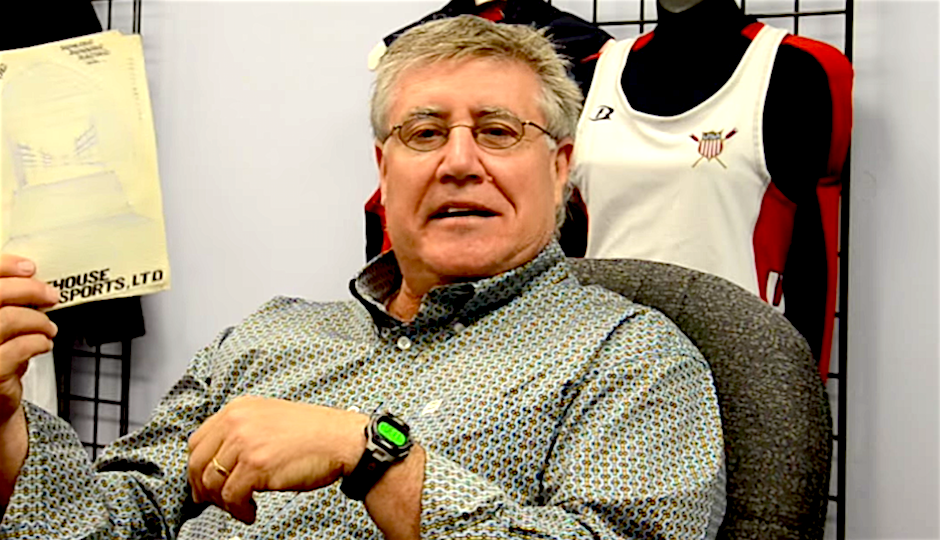Can Boathouse Sports Show Manufacturers How to Bring Jobs Back to the U.S.?

John Strotbeck | YouTube
It’s a tough campaign season for globalization.
With Donald Trump winning Republican voters by promising better trade deals, and Bernie Sanders challenging Hillary Clinton with his own brand of protectionism, it seems that “offshoring” jobs is less popular than ever.
It might be John Strotbeck’s moment. He’s the founder and CEO of Boathouse Sports in Philadelphia — it’s a sports apparel manufacturer — and he’s become an example of the success of “reshoring” — bringing offshored jobs back from overseas. He makes a cameo in the new book, American Dragon: Winning the Global Manufacturing War Using the Universal Principles of Fewer, Faster, and Finer, and he increasingly find himself cited in national magazines.
The latest citation is today at the New Yorker, where Jeffrey Rothfeder writes:
John Strotbeck, a former Olympic rower and the founder and C.E.O. of the Philadelphia-based team-uniform maker Boathouse Sports, told me that his company tried a few years ago to start manufacturing some of its sports apparel in China, but brought the production line back to a factory in Philadelphia soon afterward. The main factor was the lead time from when a customer placed an order to delivery. “Six months, and today it is even longer,” he said, of timelines at Chinese factories. “Compare that to how fast we can be now: average from the date of the order to out the door is twenty working days. And our workers are flexible; they can work anywhere in the factory and on any equipment. If all of a sudden we get a spike in demand for Gortex outerwear, a labor-intensive product, we can shift more resources and take advantage of it.”
So why does it work for Strotbeck? What are other companies missing? An article in Apparel last month suggested that in addition to “speed to market,” Boathouse Sports succeeds at reshoring largely because it’s playing in a niche market.
Today Boathouse serves school teams, individuals and professional sports. With a highly skilled workforce, it produces some 96 percent of its 1 million+ technical units each year apparel in Philadelphia, with short product runs and premium pricing, producing most items in 3.5 days from when a cutting ticket is issued.
This combination of speed to market and niche products provides an example of the business model that suggests what works best in re-shoring and Made in America, both of which the company president strongly supports. In founder and president John Strotbeck’s words, “To manufacture apparel in the U.S. and make a profit you need a niche, a unique audience and a specific skill set … ours is mass customization at its best”— and a brand that has stayed true to its craftsman and American roots.
But as New Yorker’s Rothfeder notes, reshored jobs tend not to be the low-skill work that in the past provided workers with easy entry to the middle class — they require more skill, education, and creativity. And that’s, perhaps, why the phenomenon hasn’t been noticed more widely. Read the the whole piece.


